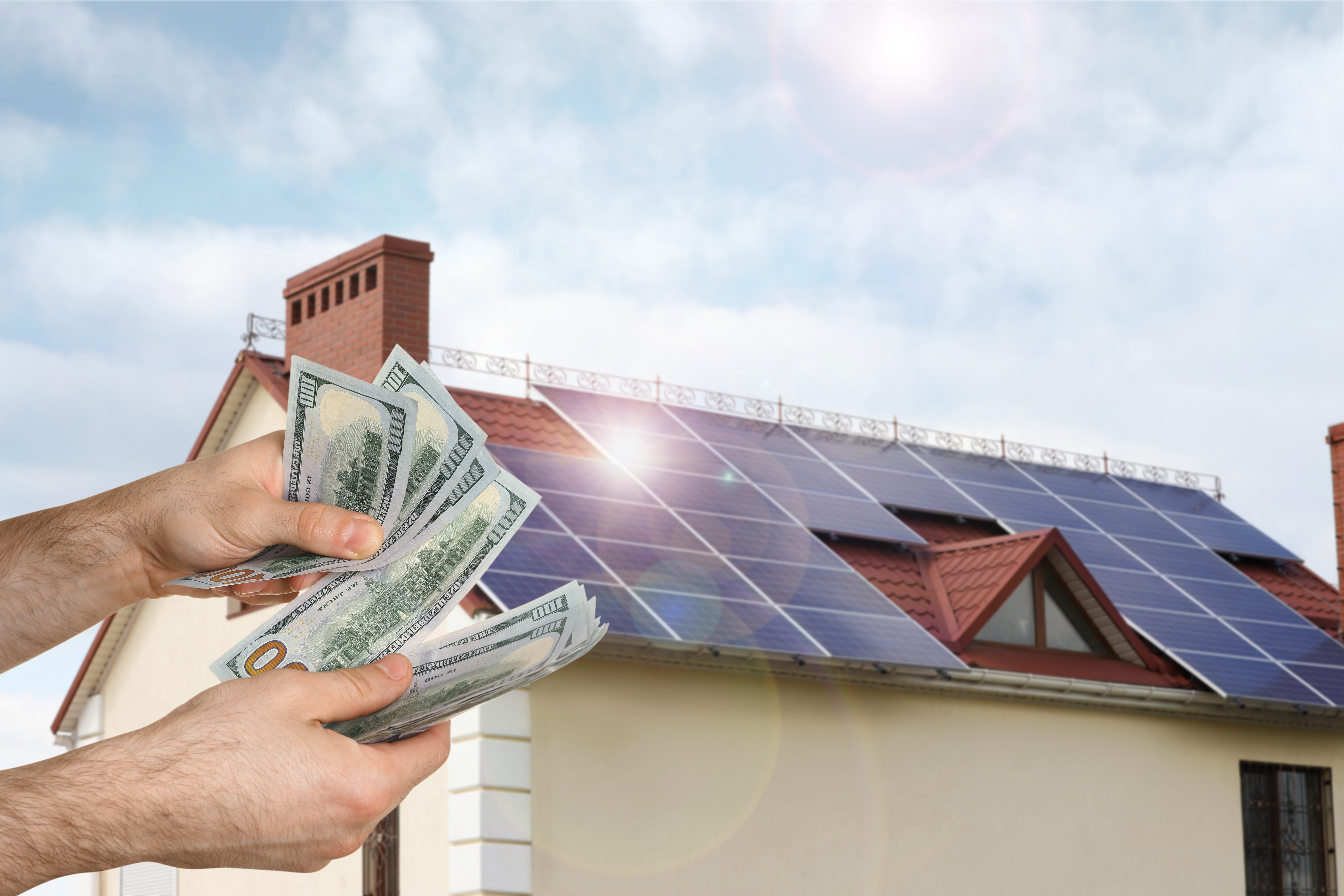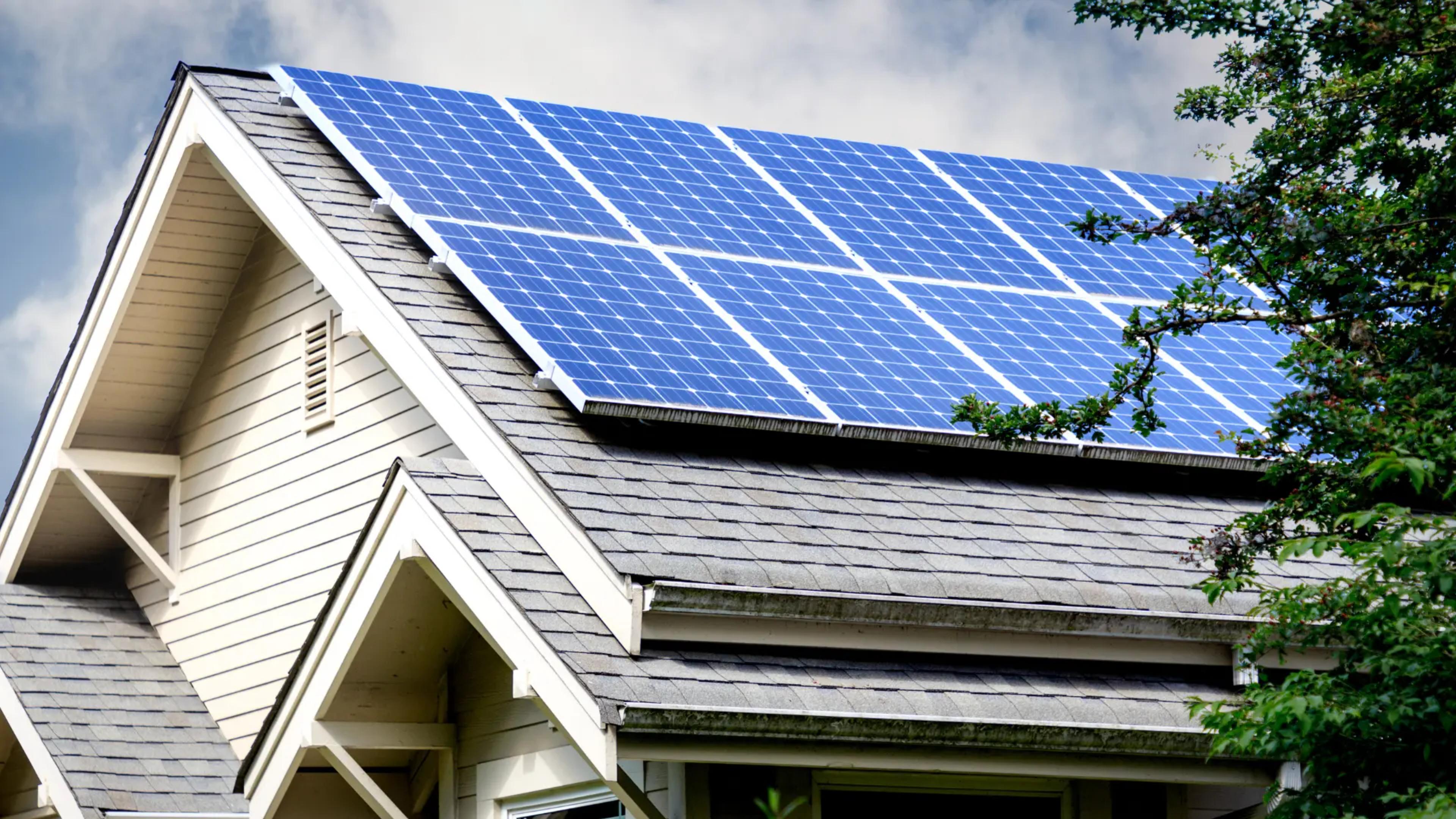Simply Solar Illinois – Your Trusted Choice in Solar Panel Solutions
Simply Solar Illinois – Your Trusted Choice in Solar Panel Solutions
Blog Article
How Solar Power Can Assist You Save Cash and Lower Your Carbon Footprint
The assimilation of solar power into your energy profile provides an engaging possibility for both financial cost savings and environmental stewardship. As different federal government rewards come to be readily available, the inquiry develops: just how can one efficiently navigate the initial investments and ongoing advantages of solar modern technology to take full advantage of both economic and environmental gains?
Understanding Solar Energy Financial Savings
While the transition to solar power frequently involves a first financial investment, understanding solar energy financial savings is crucial for house owners and services alike. Solar power systems can significantly lower electrical power expenses by using the sunlight's power, equating right into considerable lasting economic advantages. By producing their very own electrical energy, users lessen dependence on grid power, which undergoes fluctuating prices. These savings can gather over time, commonly leading to a rapid return on financial investment.
Moreover, solar power systems may certify for various financial rewards, including tax credit scores and rebates, further enhancing their cost-effectiveness. The availability of net metering enables customers to sell excess power back to the grid, creating an added earnings stream. These factors add to the general savings connected with solar power.

Along with guide financial financial savings, solar power provides the added advantage of raising residential or commercial property worth. Houses furnished with solar panels are commonly extra attractive to customers, as they assure reduced power costs - Simply Solar Illinois. Understanding these components is vital for anyone taking into consideration solar energy, as it highlights not just the possible financial gains, yet additionally the broader environmental and economic advantages of taking on renewable resource options
First Expenses vs. Long-Term Benefits
When assessing solar energy, it is necessary to weigh the preliminary prices versus the lasting benefits. The in advance investment for photovoltaic panels, installation, and related tools can be substantial, frequently ranging from $15,000 to $30,000, depending on the system size and home energy demands. This preliminary expenditure might discourage some homeowners; however, it is vital to take into consideration the potential savings with time.
When installed, solar power systems can considerably lower and even remove month-to-month electrical energy bills, causing considerable long-lasting financial advantages. Studies suggest that house owners can conserve anywhere from $10,000 to $30,000 over the life expectancy of their solar system, commonly 25 years. Additionally, numerous states provide rewards, tax obligation credits, and discounts that can counter first prices, making solar extra available.

Reducing Your Carbon Impact
Reducing your carbon impact is a critical consideration in today's ecologically mindful society, and taking on solar energy is among one of the most efficient approaches to accomplish this goal. Solar power is a tidy, renewable energy that substantially diminishes reliance on fossil gas, which are major factors to greenhouse gas exhausts.

Additionally, the extensive adoption of solar technology urges the growth of environment-friendly jobs and supports developments in energy storage and efficiency. The more individuals and organizations invest in solar energy, the higher the collective decrease in carbon exhausts, fostering a cleaner ambience for future generations.
Government Incentives and Refunds
Adopting solar power not just profits the atmosphere but can additionally cause significant financial cost savings, especially with the availability of federal government incentives and discounts. Numerous government, state, and neighborhood programs are developed to urge homeowners and organizations to invest in solar energy systems, making the change extra inexpensive.
One of one of the most prominent incentives is the Federal Financial Investment Tax Obligation Credit History (ITC), which permits solar system proprietors to subtract a substantial portion of the installation costs from their government taxes. This incentive has been critical in reducing the ahead of time expenditures related to solar power systems. Furthermore, numerous states offer their own tax credits, gives, and rebates that can further boost cost savings.
Moreover, some regional federal governments supply residential or commercial property tax exemptions for solar setups, ensuring that homeowners do not recommended you read deal with click here to read enhanced real estate tax as an outcome of their renewable resource investments. Utility companies may likewise offer incentives, including net metering and feed-in tolls, which enable solar power customers to offer excess power back to the grid.
Selecting the Right Planetary System
Selecting the proper solar system is essential for making best use of energy effectiveness and economic benefits. The decision rests on numerous variables, consisting of energy needs, budget plan, and available room. Property owners should begin by analyzing their electrical energy usage to identify the system size required for ideal efficiency.
Following, take into consideration the different kinds of solar innovations available. Simply Solar Illinois. Photovoltaic (PV) panels are the most typical, transforming sunshine straight into electrical energy, while solar thermal systems concentrate on home heating water. Each type has unique advantages depending on specific demands
Spending plan considerations are likewise critical. Initial installment costs can vary considerably, so it is essential to compare quotes from multiple companies and discover financing options. Government motivations and discounts can even more lower the economic burden, making solar systems much more accessible.
Final Thought
In recap, solar power offers a practical service for achieving considerable price savings while concurrently lessening carbon emissions. The initial investment, though considerable, returns considerable long-term financial advantages, with prospective cost savings ranging view it now from $10,000 to $30,000 over 25 years. The environmental benefits of solar power contribute to sustainable methods critical for combating climate adjustment. Government incentives enhance the usefulness of solar modern technology fostering, motivating a shift towards a cleaner, much more financially reliable power source.
Report this page